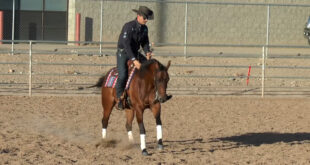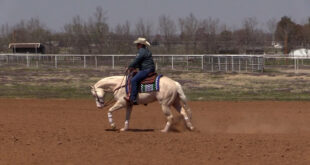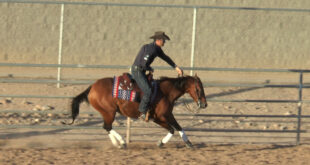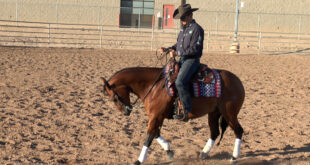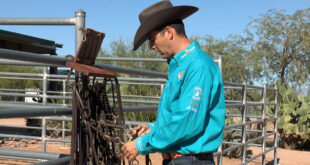Signs of ColicHere’s a quick list of the typical signs of colic, and what you should do when your horse is colicking. |

- Clinical signs of colic include behavioral changes or activity that indicate abdominal pain.
- The signs of colic are universally common, yet each horse will show their own cues.
- If you horse starts to colic or has signs immediately contact your local vet and follow their directions until they are able to diagnose your horse.
- Winter is around the corner, and lower temperatures can mean horses drink less. Dehydration and impaction colic are real concerns in the colder months.
- Continual moving (even in a stall)
- Frequently pawing at the ground
- Getting up and down constantly
- Kicking at their belly
- Turning their head to their flank
- Abundant sweating
 Virtual Horse Help and Worldwide Slide Horse Training Videos, Show Coverage, Features, Behind-the-Scenes & Bi-Weekly E-Neewsletters
Virtual Horse Help and Worldwide Slide Horse Training Videos, Show Coverage, Features, Behind-the-Scenes & Bi-Weekly E-Neewsletters


